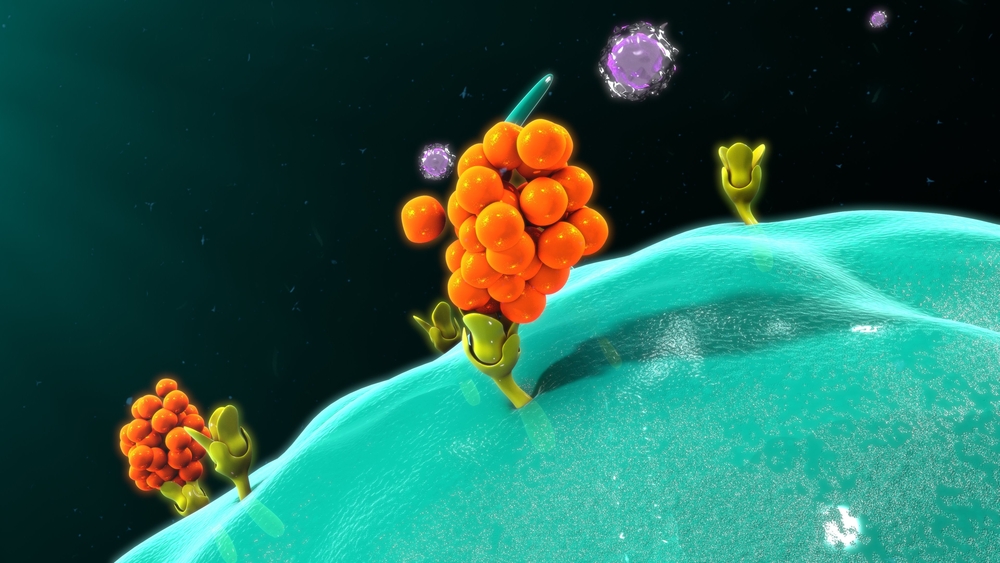Specific Cytokines Therapy Protected Neurons in Humanized Mouse Study

A cocktail of clinically approved cytokines for other diseases shows promising neuro-protective effects in a Friedreich’s ataxia (FA) humanized mouse model.
The study, “Cytokine therapy-mediated neuroprotection in a Friedreich’s ataxia mouse model,” was published in the journal Annals of Neurology.
FA is a severe neurological disease that affects the nervous system, with patients progressively losing control of their muscles (ataxia) and experiencing impaired speech. There is no approved treatment for FA. However, a group of specific cytokines and growth factors may carry therapeutic potential to protect and mediate the damages in the nervous system of FA patients. Cytokines are small proteins that are secreted by specific cells of the immune system and affect cells’ behavior and cell-cell interactions.
In the study, a group of researchers investigated the neuro-protective effects of the cytokines granulocyte-colony stimulating factor (G-CSF) and stem cell factor (SCF) using a humanized mouse model of FA. A humanized mouse is a mouse carrying functioning human genes, cells, tissues, and/or organs.
Researchers treated mice with monthly cytokines infusions applied subcutaneously (directly under the skin). Specifically, subcutaneous injection of G-CSF and/or SCF was administered once a day for five consecutive days during one month. As controls, a group of mice were treated with a saline solution during the same period.
Researchers then performed several behavioral motor performance tests. After six months of treatment, authors performed neurophysiological analysis, especially to assess the ability of electrical conduction of both sensory and motor nerves. Final analysis included profiling of certain regions of the nervous system (including dorsal root ganglion, spinal cord and cerebellum) for mRNA (molecules that are then transformed into protein) and protein expression, accompanied by a histological analysis of these tissues.
Researchers observed that cytokines infusion showed a neuro-protective effect in the humanized mouse model of FA, with treatment leading to significant reversal of biochemical, neuropathological, neurophysiological and behavioral parameters linked to FA. Treated mice exhibited significant improvements in motor coordination and locomotor activity, even after onset of clinical symptoms.
Additionally, administration of G-CSF and/or SCF restored conduction of sensory nerves and increased frataxin expression. The effects of cytokines infusion also led to reduction in inflammation and increases in neural stem cell numbers in areas of tissue injury in the mouse.
These results support the use of a combination of specific cytokines, already approved for other disorders, as a potential treatment for FA.






